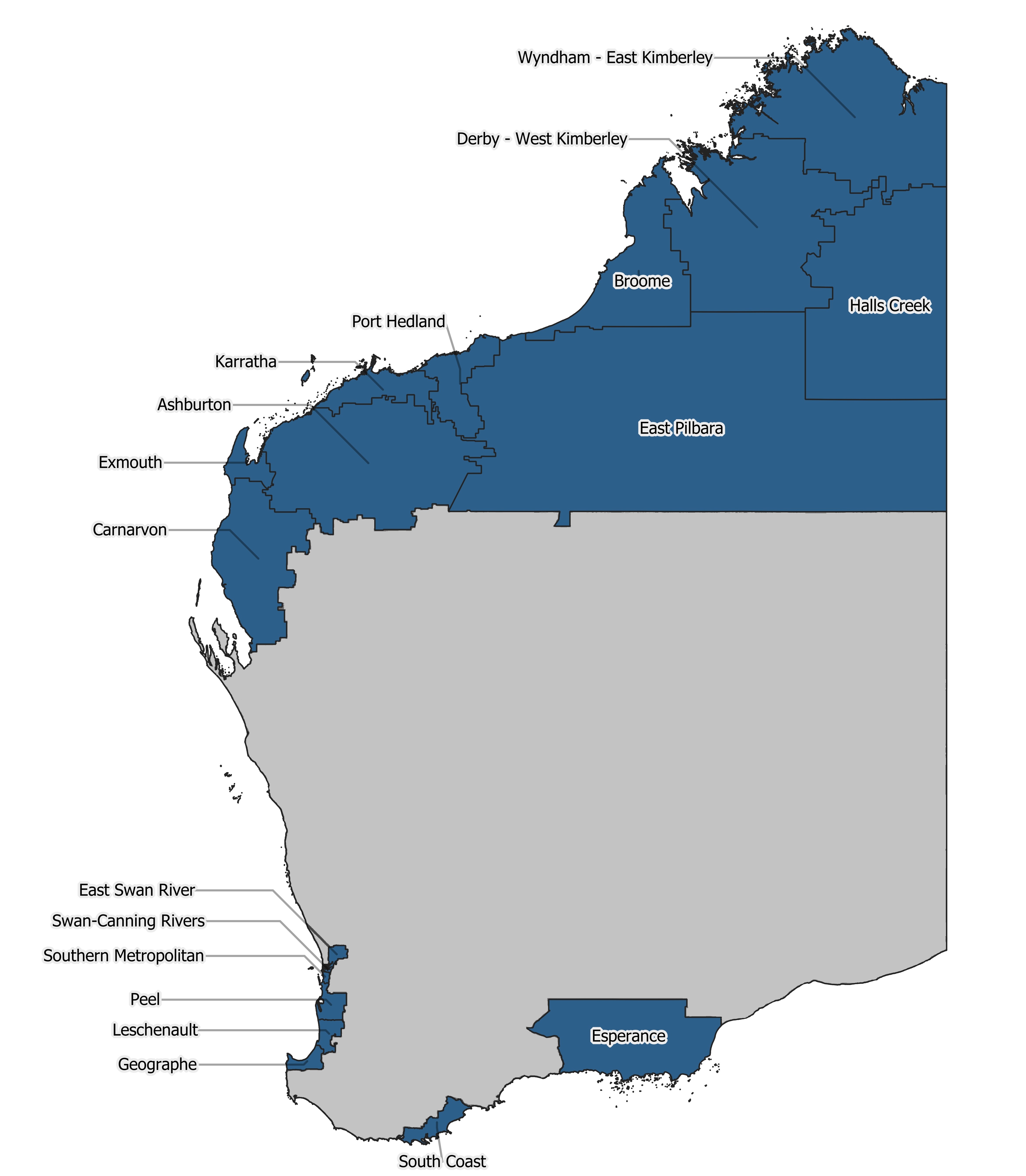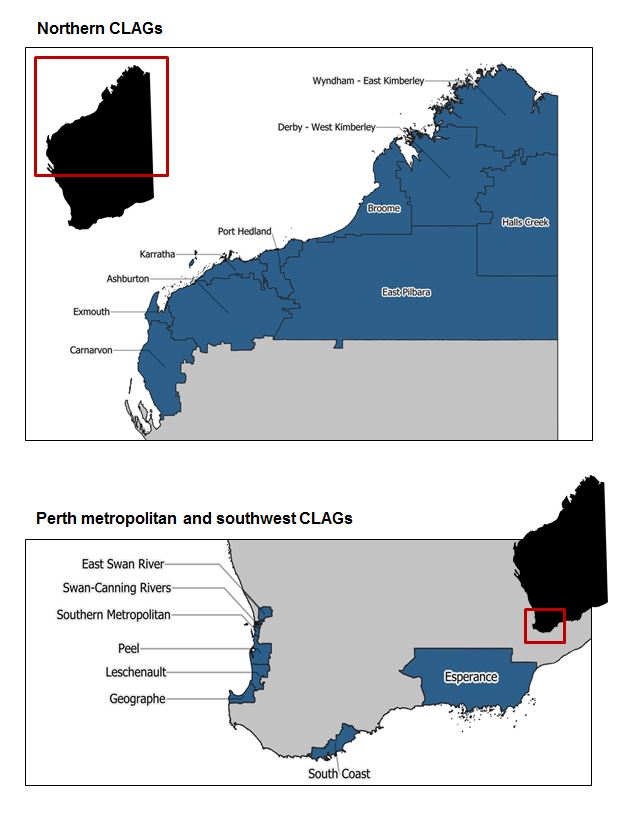
Current CLAGs in Western Australia
The Department of Health is responsible for monitoring mosquito-borne diseases and coordinating the management of insects of public health significance across Western Australia (WA). A key component of this statewide program is to provide support for local government mosquito management programs through the Contiguous Local Authorities Group (CLAG) Mosquito Management Program. The CLAG Program is a mechanism to assist local governments with management, funding and advice on the technical aspects of health-driven mosquito control, in an effort to reduce the risk of mosquito-borne diseases throughout WA.
CLAGs are comprised of one or more (contiguous) local governments that share a common mosquito problem, usually in the form of natural or man-made habitat that breed mosquitoes which subsequently impact on surrounding communities. The Department of Health funded CLAG Program was endorsed by Cabinet in 1990. Since that time, the Program has provided funding to 20 CLAGs across the state, comprising a total of 40 local governments.
Current CLAGs in Western Australia
There are currently 20 CLAGs across WA, including:
- Ashburton (Shire of Ashburton)
- Broome (Shire of Broome)
- Carnarvon (Shire of Carnarvon)
- Derby-West Kimberley (Shire of Derby-West Kimberley)
- East Pilbara (Shire of East Pilbara)
- East Swan River (Towns of Bassendean and Victoria Park and Cities of Bayswater, Belmont and Swan)
- Esperance (Shire of Esperance)
- Exmouth (Shire of Exmouth)
- Geographe (City of Busselton and Shire of Capel)
- Halls Creek (Shire of Halls Creek)
- Leschenault (City of Bunbury and Shires of Dardanup and Harvey)
- Peel (Cities of Mandurah and Rockingham and Shires of Murray and Waroona)
- Port Hedland (Town of Port Hedland)
- Karratha (City of Karratha)
- South Coast (City of Albany)
- Southern Metropolitan (Cities of Cockburn and Kwinana)
- Swan-Canning Rivers (Cities of South Perth, Canning, Melville and Perth)
- Upper Great Southern (Shires of Katanning, Broomehill-Tambellup and Gnowangerup)
- WESROC (Cities of Nedlands, Subiaco and Cambridge)
- Wyndham East Kimberley (Shire of Wyndham East Kimberley)

CLAG funding opportunities
The scheme currently provides a proportion of funding toward the cost of the following:
- mosquito larvicides
- adulticides (in northern WA only where treating large water bodies during and after the wet season is unrealistic)
- public education efforts, including Fight the Bite
- mosquito management related equipment
- minor earthworks to eliminate mosquito breeding sites
- mosquito management related training and development
- 100% of the cost associated with helicopter aerial treatments in high risk Ross River virus areas of WA's South West region
For more specific details on what is permitted, and what is not permitted, please refer to the CLAG Funding Guidelines (PDF 161KB).
Review of the CLAG Mosquito Management Program
The Department of Health is undertaking review of the CLAG Program which involved surveying participating and prospective local governments considering membership, to better understand their views and expectations regarding the administration and operation of the program to manage public health risks caused by mosquitoes across Western Australia.
Since the CLAG Mosquito Management Program was last reviewed in 2009, the number of CLAGs supported by Department of Health with technical, advisory and financial support has risen to twenty (20) across the State, comprising a total of forty (40) local governments. A changing climate, consecutive years of La Niña weather patterns, and more recently, the requirement for increased mosquito surveillance and response preparedness activities to mitigate the growing risk of Japanese encephalitis virus (JEV) has heightened the importance of providing a responsive and innovative mosquito management program.
A consultation survey of local governments commenced in March 2023 and closed on 18 April 2023. Local governments were invited to answer an online survey to provide views, requirements and expectations regarding the CLAG Program, including prospective local governments who may wish to seek membership in the future. Responses will help the Department of Health consider how best to support mosquito management within the State and participating CLAGs in an equitable and sustainable way.
A Consultation Summary Report (PDF 623KB) of the data provided by local governments through the consultation process has been developed.
How to form a CLAG
Further information on forming a CLAG please refer to the CLAG Formation Factsheet (PDF 135KB).
CLAG Forum
Medical Entomology host an annual CLAG forum to discuss mosquito management issues. Refer to the medical entomology section of the Environmental Health webinar library to watch previous presentations or the mosquito management YouTube training playlist (external site).
More information
Phone: (08) 9285 5500
Email:
medical.entomology@health.wa.gov.au
Last reviewed: 31-08-2023
Produced by
Public Health